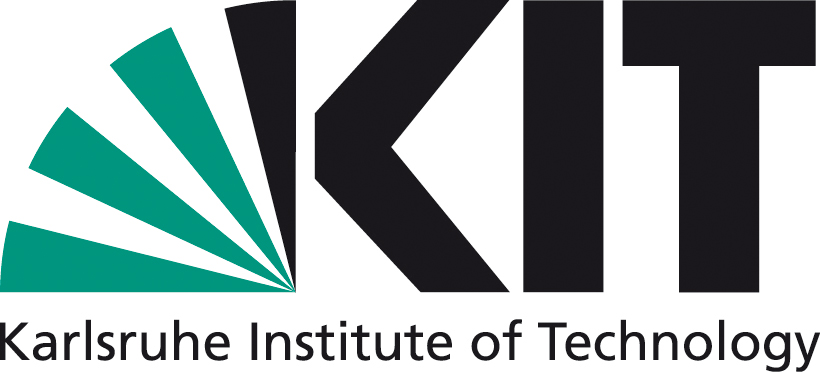Making intelligent cities in Europe climate-neutral
About the necessity to integrate technical and socio-cultural innovations
DOI:
https://doi.org/10.14512/tatup.30.1.11Keywords:
smart and intelligent cities, urban planning, climate-neutrality, socio-cultural innovation, socio-technical resilienceAbstract
Smart urban futures are currently being tested and promoted in Europe using innovative and intelligent urban technologies at different spatial scales, in individual sectors such as energy or transport, or by using specific technological innovations. However, the great transformation, though often called for and widely advocated, is yet to come. This paper discusses the necessity of promoting integrative approaches that go beyond technology-centered solutions with the aim of opening up paths towards urban climate neutrality: Precisely because urban futures are hardly predictable due to diverse and partly still hidden influencing factors, it is important to include especially socio-cultural innovations, as well as resilient technical solutions. The considerations developed in this regard conclude with a presentation of the contributions in this TATuP special topic.References
Aloul, Fadi; Al-Ali, Abdulrahman; Al-Dalky, Rami; Al-Mardini, Mamoun; El-Hajj, Wassim (2012): Smart Grid security. Threats, vulnerabilities and solutions. In: International Journal of Smart Grid and Clean Energy 1 (1), pp. 1–6.
Bauriedl, Sybille; Strüver, Anke (eds.) (2018): Smart City. Kritische Perspektiven auf die Digitalisierung der Städte. Bielefeld: transcript.
Berger, Olaf; Schmalfeld, Andreas (1999): Stadtentwicklung in Hamburg zwischen „Unternehmen Hamburg“ und „Sozialer Großstadtstrategie“. In: Jens Dangschat (ed.): Modernisierte Stadt, gespaltene Gesellschaft. Ursachen von Armut und sozialer Ausgrenzung. Opladen: Leske + Budrich, pp. 317–341.
Buldyrev, Sergey; Parshani, Roni; Paul, Gerald; Stanley, Eugene; Havlin, Shlomo (2010): Catastrophic cascade of failures in interdependent networks. In: Nature 464 (7291), pp. 1025–1028.
Charnock, Greig; March, Hug; Ribera-Fumaz, Ramon (2021): From smart to rebel city? Worlding, provincialising and the Barcelona Model. In: Urban Studies 58 (3), pp. 581–600.
de Hoop, Evelien; Smith, Adrian; Boon, Wouter; Macrorie, Rachel; Marvin, Simon; Raven, Rob (2019): Smart urbanism in Barcelona. A knowledge politics perspective. In: Jens Stissing Jensen, Matthew Cashmore and Philipp Späth (eds.): The politics of urban sustainability transitions. Knowledge, power and governance. London: Routledge, pp. 33–52.
Deutscher Städtetag (2020): Digitale Souveränität von Kommunen stärken. Diskussionspapier des Deutschen Städtetags. Berlin: Deutscher Städtetag. Available online at https://www.staedtetag.de/files/dst/docs/Publikationen/Positionspapiere/2020/digitale-souveraenitaet-diskussionspapier.pdf, last accessed on 29. 01. 2021.
EC-DGRI – European Commission, Directorate General for Research and Innovation (2020): 100 climate-neutral cities by 2030 – by and for the citizens. Interim report of the mission board for climate neutral and smart cities. Luxembourg: Publications Office of the European Union.
Friedman, Jonathan (2001): The iron cage of creativity. An exploration. In: John Liep (ed.): Locating cultural creativity. London: Pluto Press, pp. 46–61.
Harrison, Collin; Abbott Donnelly, Ian (2011): A theory of smart cities. In: Proceedings of the 55th Annual Meeting of the International Society for the Systems Sciences, Hull, UK, 17.–22. 07. 2011, pp. 521–535. Available online at https://journals.isss.org/index.php/proceedings55th/article/view/1703/572, last accessed on 29. 01. 2021.
Helbing, Dirk (2013): Globally networked risks and how to respond. In: Nature 497 (7447), pp. 51–59.
Hofmann, Josephine; Ricci, Claudia; Ansu-Holz, Doris (2021): IT und Nachhaltigkeit. Eine Einführung. In: HMD Praxis der Wirtschaftsinformatik 58 (1), pp. 6–23.
Hornborg, Alf (2014): Technology as fetish. Marx, Latour, and the cultural foundations of capitalism. In: Theory, Culture & Society 31 (4), pp. 119–140.
Kropp, Cordula (2019): Nachhaltige Innovationen. In: Birgit Blättel-Mink, Ingo Schulz-Schaeffer and Arnold Windeler (eds.): Handbuch Innovationsforschung. Wiesbaden: Springer Fachmedien, pp. 1–18.
Lombardi, Patrizia; Giordano, Silvia; Farouh, Hend; Yousef, Wael (2012): Modelling the smart city performance. In: Innovation – The European Journal of Social Science Research 25 (2), pp. 137–149.
Ottenburger, Sadeeb Simon et al. (2020): A novel optimization method for urban resilient and fair power distribution preventing critical network states. In: International Journal of Critical Infrastructure Protection 29, p. 100354.
Panteli, Mathaios et al. (2015): Impact of climate change on the resilience of the UK power system. In: Proceedings of the IET International Conference on Resilience of Transmission and Distribution Networks. Birmingham, UK: Institution of Engineering and Technology.
Rauterberg, Hanno (2020): „Eine Architektur des Ankommens“. In: DIE ZEIT, 07. 02. 2020, p. 46.
Santarius, Tilman; Pohl, Johanna; Lange, Steffen (2020): Digitalization and the decoupling debate. Can ICT help to reduce environmental impacts while the economy keeps growing? In: Sustainability 12 (18), p. 7496.
Schneidewind, Uwe; Zahrnt, Angelika; Zahrnt, Valentin (2013): Damit gutes Leben einfacher wird. Perspektiven einer Suffizienzpolitik. Munich: oekom verlag.
Schneidewind, Uwe; Scheck, Hanna (2013): Die Stadt als „Reallabor“ für Systeminnovationen. In: Jana Rückert-John (ed.): Soziale Innovation und Nachhaltigkeit. Perspektiven sozialen Wandels. Wiesbaden: Springer VS, pp. 229–248.
Sonnberger, Marco; Gross, Matthias (2018): Rebound effects in practice. An invitation to consider rebound from a practice theory perspective. In: Ecological Economics 154, pp. 14–21.
Stadt Soest (2021): Soest Digital. Available online at https://digital-soest.de/, last accessed on 28. 01. 2021.
Ufer, Ulrich (2018): Practicing urban transformation. Places of solidarity and creative traditionalism in transatlantic comparison. In: City & Society 30 (3), pp. 318–340.
Ufer, Ulrich; Hausstein, Alexandra (2021): Anthropology of and for innovation. In: Gerald Gaglio, Benoît Godin and Dominique Vinck (eds.): Handbook of alternative theories of innovation. Cheltenham, UK: Edward Elgar Publishing, in press.
WBGU – Wissenschaftlicher Beirat der Bundesregierung Globale Umweltveränderungen (2016): Der Umzug der Menschheit. Die transformative Kraft der Städte. Berlin: WBGU.
Yigitcanlar, Tan; Kamruzzaman, Md.; Foth, Marcus; Sabatini-Marques, Jamile; da Costa, Eduardo; Ioppolo, Giuseppe (2019): Can cities become smart without being sustainable? A systematic review of the literature. In: Sustainable Cities and Society 45, pp. 348–365.
Published
How to Cite
Issue
Section
License
Copyright (c) 2021 Cordula Kropp, Astrid Ley, Sadeeb S. Ottenburger and Ulrich Ufer

This work is licensed under a Creative Commons Attribution 4.0 International License.








